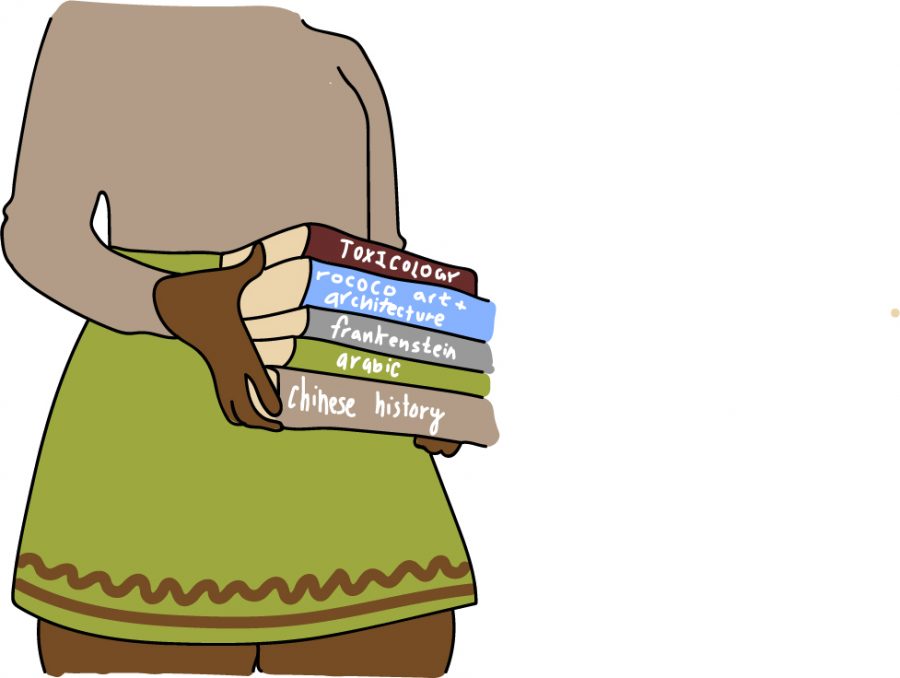the advantages of the academia aesthetic
new subculture benefits students in various ways
If you’ve been on TikTok, Pinterest or Tumblr at all in the past few months, you may have seen the emergence of a new subculture: academia. Sometimes further divided into dark and light academia, this new culture prioritizes elegance, mystery, and above all else, a yearning for knowledge.
The followers of this culture, Academics, are likely to enjoy reading and analyzing classical literature, researching and writing about topics that interest them, and studying art. Although most Academics are more interested in reading, writing, and visual art, many also manage to romanticize STEM subjects. Although I couldn’t imagine having such an incredible level of enthusiasm for school, I fully respect Academics for turning school into something enjoyable.
This subculture is beneficial in many ways. By merging aesthetics with education, it drives many to perform better in school, or at least try to. Many Academics also remain optimistic and excited about their schoolwork, bringing more joy into their lives through something most people would consider exhausting. One tumblr user proposes that math students should begin “seeing mathematics as a secret language and barrier from the rest of the world” and describes an image of a chemistry student “spending hours upon hours alone in the lab, perfecting formulas and conducting research because [they] just know the breakthrough is so close.”
However, the most beneficial part of the entire subculture is the value they place on being passionate and dedicating life to learning things outside of school. Many academics learn languages, play instruments, go to museums, and learn about nature as hobbies. This subculture creates a new group of people who are well rounded, comparable to “renaissance men,” and filled with knowledge, thus having greater potential to make an impact on humanity.
Despite the good nature of the subculture, there are, inevitably, some downsides. On a small scale, it can promote the idea of intense learning at the expense of self-care and physical health, such as the “Academic” habit of drinking too much coffee and not getting enough sleep. On a larger scale, the subculture can promote elitism, shunning those who are unable to afford higher education, and racism, as many of the posts are white-washed and from a Westernized perspective.
However, a few individuals are combatting this trend by including people of color in Academia-themed posts, suggesting classic books from Asian writers, and pushing more people to learn Afro-Asiatic and Sino-Tibetan languages. It’s also important to recognize that it’s up to the individual to make sure that they are taking care of themselves, and not engaging with the negative aspects of a culture in order to fit into a box.
The upsides of this subculture go beyond education. Academics idealize groups of friends that spent lots of quality time together, typically doing something educational. By being in the presence of people who challenge them, it allows them to grow their knowledge, grow as a person, and have fun.
Even for those of us who find it infeasible to enjoy school, it would do us all good to adopt the values of passion, optimism, and growth that the academia subculture holds so dearly.

Stephanie Kontopanos is a senior and the assistant editor of The Tiger Print. This is her third year on staff and her second year being the Newspaper Grandma...




